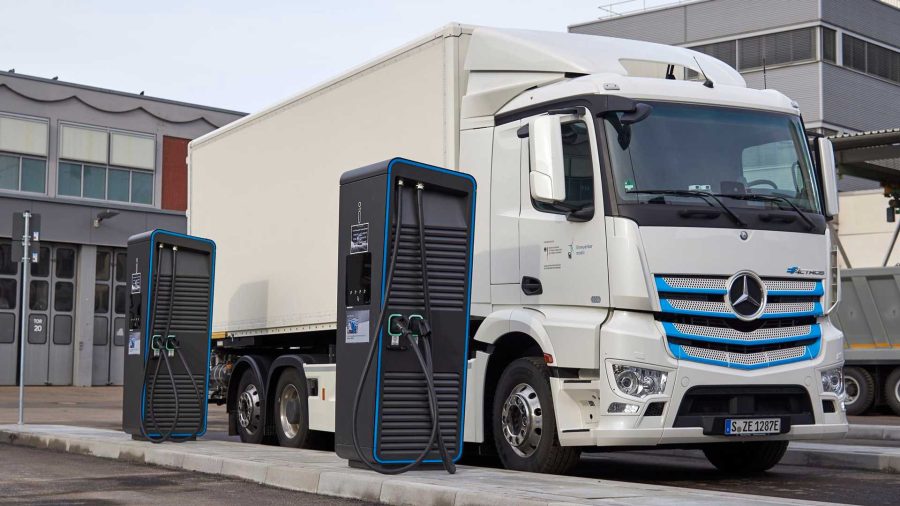The electromobility sector had hoped for a more «adventurous» definition from the European Commission that would set a date for the end of the combustion engine in heavy transport. However, it opted to go down a more «grey» path.
It did not satisfy either the electromobility sector or some manufacturers who, even as the legislation – which has only just entered Parliament – stands, argue that it is «too pretentious».
«The 90% target is probably easier to achieve politically with certain actors. In the end, it was a political decision at Commission level, but the official arguments are of technological uncertainty,» says Thomas Neumann, Policy Manager at the European Association for Electromobility (AVERE).
The Commission’s argument is that there are cases where it is not yet clear whether the technology will be available for certain regions. In addition, it is not certain that hydrogen will be ready by the dates proposed.
What is proposed is that CO2 emissions from heavy duty vehicles should be reduced compared to 2019 emissions, as follows:
- 45% less from 2030;
- 65% less from 2035;
- 90% less from 2040.
The Commission did set a date for city buses. If approved as presented, polluting buses would no longer be allowed to run in cities from 2030.
«We believe it would have been a clearer signal to the industry to set a clear date, it would give certainty to the industry about the direction to take,» explains Neumann.
AVERE is convinced, as they stated in a press release the day the document was presented, that a date of 2035 should be set, with a gradual phase-out in the years prior to that.
This in the case of goods transport and other heavy duty vehicles, with the exception of professional vehicles, for which a date of 2040 is proposed.
However, the association also proposes 2027 as the end date for the circulation of polluting city buses. According to its position, a large number of EU cities have been moving in this direction for some time.
Neumann gives the example of Poland, a country that is not a leader in the transition but where he sees a very favourable outlook, where everything is going «very fast».
«Or at least the 2040 target should have been brought forward, ideally by 2035 as a general rule,» the Policy Manager says as another solution.
The Commission’s decision will extend the stay of combustion vehicles on the road for at least another 15 years, bearing in mind that the proposed end date is 2050.
In favour of the manufacturers?
«I don’t work in the Commission, so it’s difficult to know which stakeholders they talked to. They say they did a public consultation. But in the end, we don’t know what extent certain manufacturers or organisations influenced the outcome,» says Neumann.
But in his view, and judging by the way the Commission chose to go about it, it is somewhat «compromised». «It is not as soft as the manufacturers would have liked.
But, associations such as AVERE or Transport&Environment were not in favour of the measure either.
«This political compromise they have chosen is something between their medium and high ambition, although even the high ambition ones do not coincide with ours,» says AVERE’s Policy Manager.
Parliament’s positions
The next step of the submitted draft is for the Parliament to review it point by point and debate it. It will then be known where it needs to be improved or amended.
«We expect a polarised debate like the one we had on the end of the combustion car engine,» says Nuemann.
Perhaps it is possible to deduce the position of the progressives or the green socialists, who are mostly in favour of AVERE’s position. But then there will be the position of the conservatives who, presumably, will stand on the other side of the fence. «This is a very controversial topic».




















